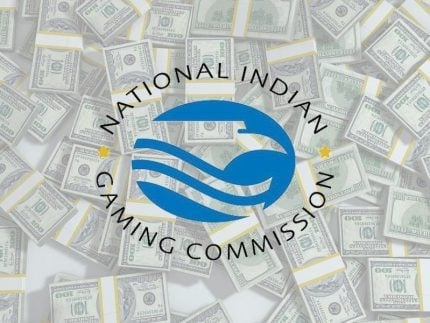Tribal Casinos Also Targeted in Spate of âImposterâ Fraud, Warns NIGC

Posted on: July 18, 2023, 04:55h.
Last updated on: July 18, 2023, 05:09h.
Tribal gaming operators have been told to look out for a wave of imposter scams targeting casinos in the US.

In the notice sent to the tribal gaming industry this week, the National Indian Gaming Commission (NIGC) warned operators and regulators to be on the alert for con artists claiming to be vendors, or state or tribal officials looking to bilk casinos out of large sums of cash.
Circa Con
The notice follows news of the arrest last month of a man accused of stealing $1.17 million from Circa in downtown Las Vegas by pretending to be one of the casino’s owners, either Derek or Greg Stevens.
The suspect, Erik Gutierrez Martinez, has also been charged with attempting to steal $250K from the Eureka Casino Resort in Mesquite, Nev. under similar circumstances.
A comparable crime occurred at the Golden Nugget in Laughlin, Nev., although it’s not clear whether Gutierrez Martinez is suspected of involvement.
The NIGC’s notice suggests the scheme isn’t confined to Nevada’s commercial casinos. It cites a recent incident at an unnamed tribal casino where an employee working in the vault received a call from an individual impersonating a tribal official.
The imposter told the employee that a cash payment needed to be made instantly to ensure a vital shipment of casino equipment. The victim was instructed to take $100K from the vault and remain on the line on their cell phone while they dropped it off at several Bitcoin deposit kiosks in the area. They were then told to send the QR code at the kiosks to the scammers.
False Emergencies
The NIGC said scammers sound credible and use perceived authority and fear to trick employees into violating internal protocols.
They typically create a false emergency and assert that the victim’s failure to comply would have catastrophic repercussions for them personally and for the casino operation or tribe.
The scammers have done their research, according to the NIGC. They are often able to provide what appears to be first-hand knowledge of the casino’s internal policies.
If challenged, they push back with threats of dismissal or legal action. They use spoofed phone numbers to make it appear they are the person they’re impersonating.
The NIGC encouraged tribal operators to ensure their staff are made aware of the scam and are trained never to deviate from company protocol. Operators who receive suspicious calls should report them to local law enforcement or their local FBI office.
Related News Articles
Source: casino.org
